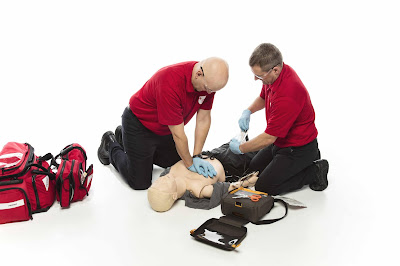What are the Common Injuries Treated in Remote First Aid?
When you think of remote first aid, you might be concerned about how to treat an injury that's far away. While you can't physically touch a patient to assess them, there are plenty of things that make treating injuries in remote settings easier than ever before.
Click here: remote first aid - My First Aid Course
For example, high-resolution cameras and wireless connections can help ensure that you're able to diagnose and treat patients faster than ever before!
Minor burns and cuts
Minor burns and cuts are the most common injuries in remote locations. You can treat a minor burn in the field by cooling it with water, or if you're not near water, by wrapping ice in a towel and placing it on top of your burn.
To treat a cut, wash out any dirt with clean water and apply pressure until bleeding stops; then bandage with gauze or other material (like duct tape) to stop further bleeding and prevent infection from entering into your bloodstream through open wounds.
If there's no medical professional around to help you out after an accident, try remote first aid that will help recover the injury soon.
Dehydration
Dehydration is a common injury that can be treated at home. Signs and symptoms of dehydration include:
- thirst
- dry mouth, skin, and eyes
- light-headedness or dizziness (especially when standing up)
If you suspect someone is suffering from dehydration, you should encourage them to drink water or other fluids. If they are unable to drink on their own, provide them with small amounts of water at regular intervals until the symptoms subside or medical help arrives.
Sunburn
Sunburn is a form of skin damage caused by ultraviolet (UV) radiation, which consists of UVA and UVB rays. Sunburn occurs when skin is directly exposed to the sun's rays and is not protected by some form of clothing or sunscreen.
Sunburn can be treated by applying a pain reliever, like acetaminophen or ibuprofen. If you suspect that your sunburn will require medical attention, please call 911 immediately.
Insect bites or stings
If you or a colleague is stung by an insect, the best thing to do is not to rub the area. This will only make things worse and cause more pain. Instead, use a cold compress on the area for 15 minutes.
If there is swelling or itching after about an hour of applying this treatment, take an antihistamine pill; if there's no improvement within an hour of taking it (or if you're allergic), take another dose and then call 911 immediately because this could be life-threatening.
If none of these treatments work after three hours and there has been no improvement in your symptoms--and especially if they start getting worse--then get medical attention as soon as possible!
If you're looking for ways to help people in remote areas, remote first aid is a great option. You can use the skills and knowledge you already have to help people who may not be able to get professional medical attention right away or at all.




Comments
Post a Comment